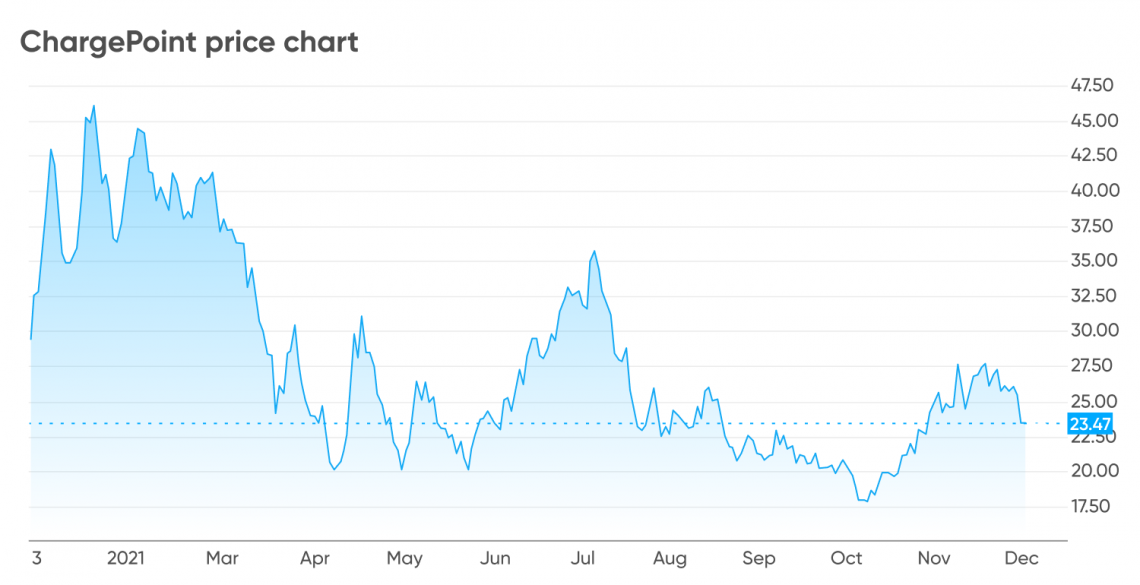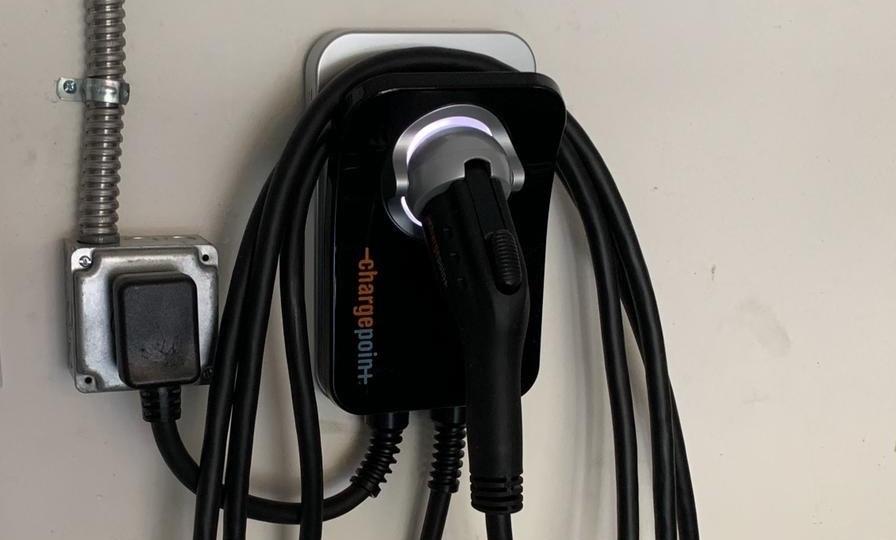

See companies with highest Short Interest as a Percent of Float This data is NOT split-adjusted - it reflects the raw data provided by the SEC. So, for example, daily data for the month of March would arrive around mid April.
#CHARGEPOINT STOCK VALUE UPDATE#
Update Frequency: SEC publishes daily data in batches that are delivered twice monthly and lagged about two weeks. If all shares were delivered on a particular day, then there will be no entry in the table. Thus, it is important to note that the age of fails cannot be determined by looking at these numbers. In other words, these numbers reflect aggregate fails as of a specific point in time, and may have little or no relationship to yesterdays aggregate fails. The figure is not a daily amount of fails, but a combined figure that includes both new fails on the reporting day as well as existing fails.
#CHARGEPOINT STOCK VALUE PLUS#
Fails to deliver on a given day are a cumulative number of all fails outstanding until that day, plus new fails that occur that day, less fails that settle that day. The values of total fails-to-deliver shares represent the aggregate net balance of shares that failed to be delivered as of a particular settlement date. See our Short Squeeze Leaderboards for US, Canada, Australia and Hong Kong The effect of this change is that the updated model will favor low-float companies over others, all other things being equal. It can be thought of as a "utilization" metric.Įxplanation: If two companies both have 25% short float, but one has 10M unshorted shares floating and the other has 200M unshorted shares floating, the first one is clearly more susceptible to a short squeeze. This is the raw number of shares available to trade that have not been shorted. JWe have updated our scoring model to include (Float - Short Interest) as a ranking factor. The number ranges from 0 to 100, with higher numbers indicating a higher risk of a short squeeze relative to its peers, and 50 being the average. The scoring model uses a combination of short interest, float, short borrow fee rates, and other metrics. The Short Squeeze Score is the result of a sophisticated, multi-factor quantitative model that identifies companies that have the highest risk of experiencing a short squeeze. When it is time to report, any open short positions are reported, no matter what type of trading venue those shares were acquired on. However, once a trade is made, dark pool trades are published on the tape and tracked like every other trade. The primary difference between a dark pool and a lit exchange is that pre-trade information such as bid/ask are not available. for more information.Īre dark pool trades counted in short interest figures? Yes, they are. See Short Interest - What It Is, What It Is Not. exchange rules require that brokerage firms report short interest data to FINRA on a per-security basis for all customer and proprietary firm accounts twice a month, around the middle of the month and again at the end of each month. Is short interest self-reported, and therefore unreliable? Short interest is not self-reported. The float and shares outstanding we use are sourced from Capital IQ, which is one of the top firms that provide this data. We get this data directly from those agencies on a daily or twice-weekly basis. For Canadian, Australian, and Hong Kong markets, the short interest is published by the regulatory agencies of those countries.


We do not source short interest from a single broker. This is the official data and covers a broad spectrum of the market. The Short Interest figures we provide are sourced directly from the stock exchanges (NASDAQ, NYSE, NYSE American, NYSE Arca, CBOE, and IEX) and FINRA. Where does Fintel get its data? We source our short interest data from a variety of providers. Note that short interest is published twice-monthly, on a schedule set by FINRA. The data is organized by frequency of updates, with intraday data at the top (short shares availability, short borrow fee rate), daily data (short volume, fails-to-deliver) in the middle, and the slowest updated data (short interest) at the bottom. This short interest tracker provides a variety of short interest related data, sourced from a variety of partners.


 0 kommentar(er)
0 kommentar(er)
